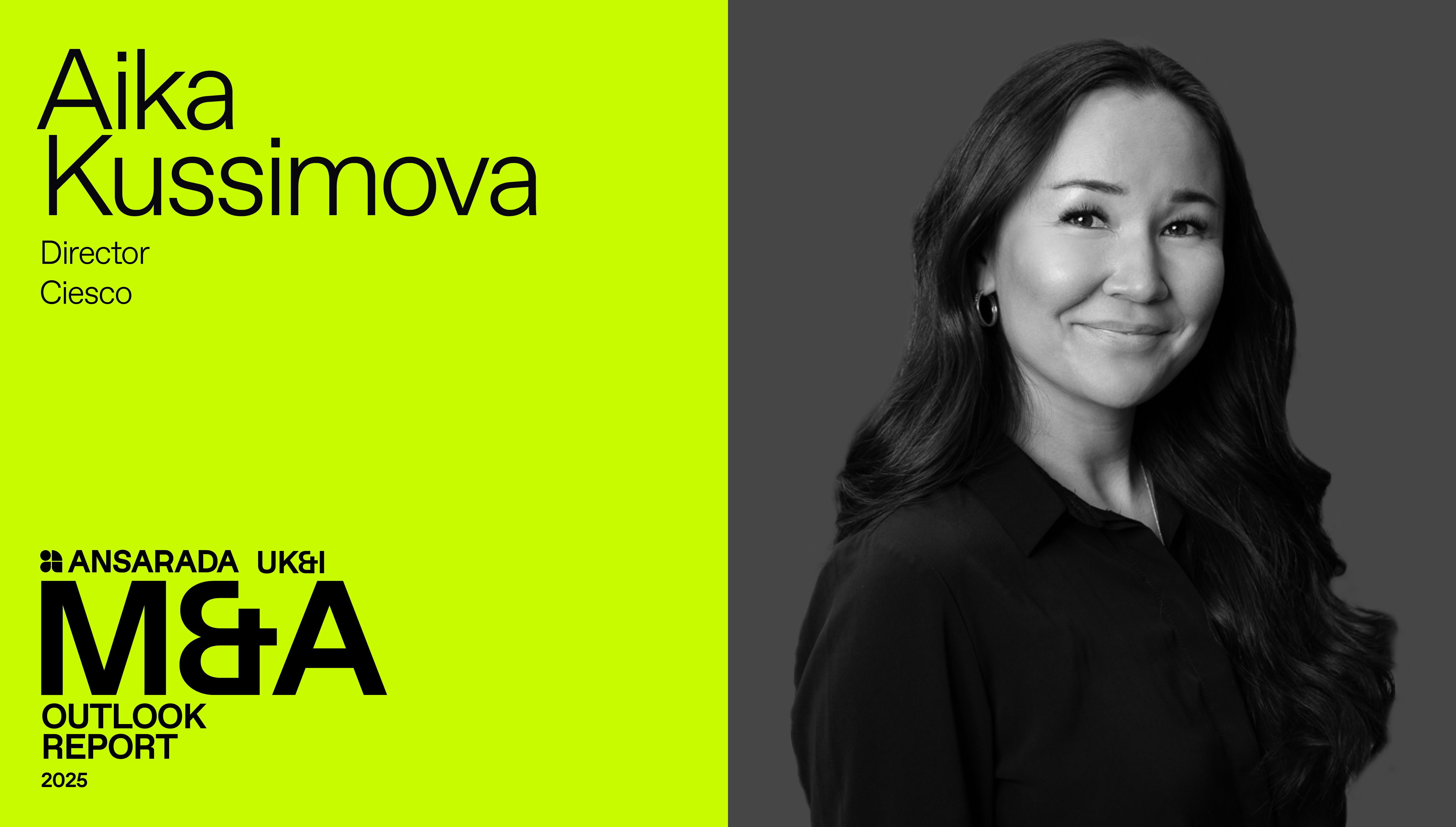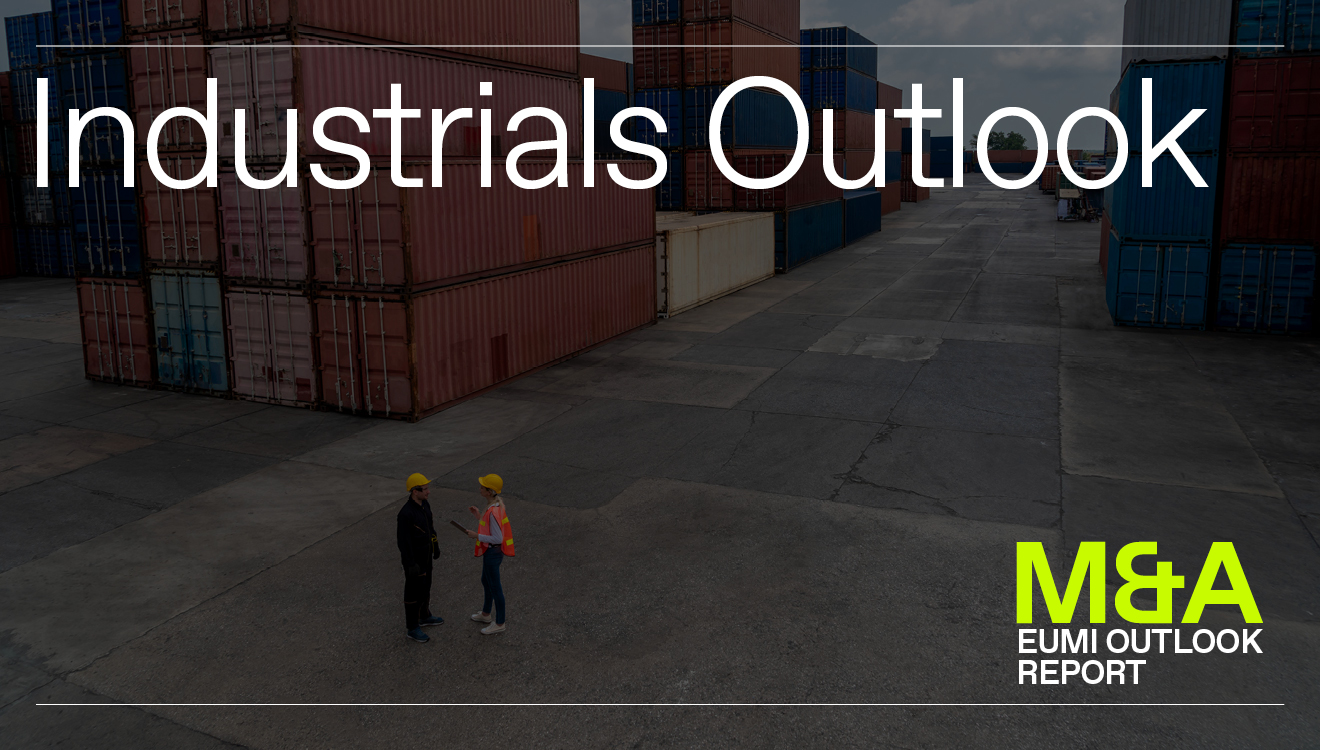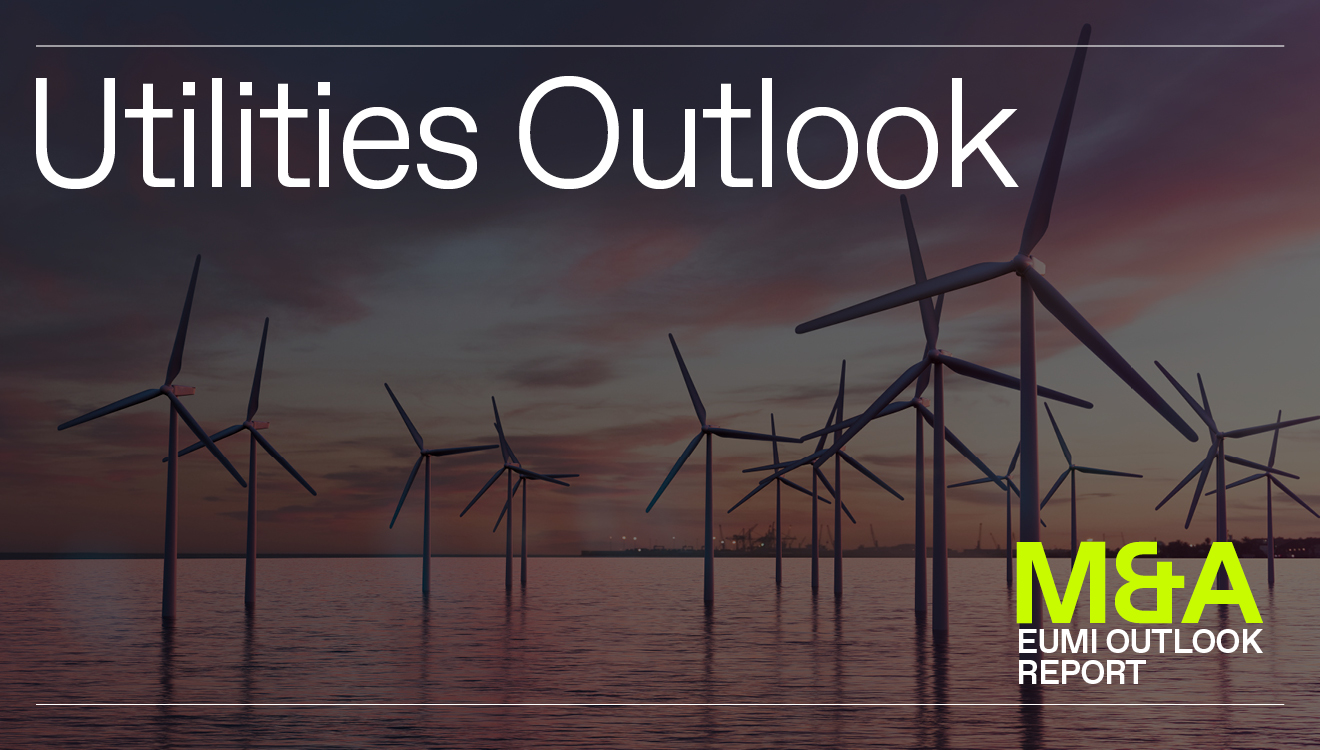Ciesco's Aika Kussimova: Tech, media and sustainability to drive UK&I M&A in 2025
Diversification, transformation and sustainability are some of the tailwinds behind transactions in the previous 12 months.
By AnsaradaMon Mar 31 2025Mergers and acquisitions, Advisors, Industry news and trends

Ciesco Associate Director, Aika Kussimova has been with the business for almost a decade. She has worked closely with the founder and CEO of Ciesco, Chris Sahota, in building the company into a leading global M&A specialist in technology, media, healthcare and sustainability.
“A highlight of my career has been contributing to Ciesco’s evolution and working on transformative deals for buyers and sellers in the US, Australia, Europe and the UK. It’s been incredibly rewarding to build strong, long-lasting relationships with founders, investors, corporate leaders and advisers in this vibrant ecosystem,” she says.
Aika says while every successful deal is a highlight, seeing the impact deals have post-completion is equally as rewarding. “Numbers are crucial, but understanding people, their motivations and story and building trust is what drives success in M&A.”
This excerpt from our 2025 UK&I M&A Outlook Report, which features insights from 8 top UK&I dealmakers, explores Aika’s perspective on the factors shaping M&A activity in the UK&I market. Aika discusses the rise of tech, media, healthcare and sustainability M&A, plus the impact of the National Security and Investment Act.
A promising outlook for M&A activity
While tech and media have been resilient during a period of slow activity, next year looks promising for M&A activity overall. “We are seeing strong demand from sellers and acquirers, largely driven by record dry powder levels and the need to put that capital to work,” says Aika. Tech, media, health and sustainability saw an increase in M&A activity in the first half of 2024 and Aika expects the trend to continue.
The high rates of refinancing and capital raising is a great signal for the upcoming M&A surge, demonstrating higher investor appetite and preparedness to execute transactions,” she says.
Independent business founders will be motivated to explore strategic exits and new partnerships, on the back of strengthening trading dynamics. Additionally, M&A will remain a big part of corporates’ development strategies to acquire niche capabilities and global talent.
“Many have significant cash on their balance sheets and, in many processes, they are emerging as a more bullish party. Given macro challenges, businesses are turning to M&A to drive growth, diversify and adapt to market conditions,” she says.
The rise of tech, media, healthcare & sustainability
Major themes include integration, digitalisation and AI and data. There’s also growing interest in integrated, end-to-end solutions. “Companies are looking for diversification and ways to bolster against economic uncertainty. We will see deals addressing strategic and labour talent gaps, digital transformation, upskilling or expanding sustainability capabilities and adapting to market changes,” says Aika. In private equity, the story is all about deploying the substantial capital that’s available. Institutional investors are seeking high-quality assets with significant scale and a resilient and future-proofed business profile.
There is an increased interest in buy-and-build and roll-up opportunities. Trade buyers will continue to pursue competitive advantage, scale and transformation via M&A strategies. Aika expects corporate divestment of non-core assets to be a theme. “We have identified multiple assets with the right business profile, management team, clients and capabilities across global corporates that could be divested or that have potential as an interesting PE-backed buyout.”
Navigating geopolitical and regulatory risks
The outlook for deal activity is positive, nevertheless, there are always potential risks to consider and presently the biggest ones are probably in the geopolitical space. Tech-driven disruptions can happen overnight, including rapid AI advancements that reshape industries – after its release, in just two months, ChatGPT became the fastest-growing consumer application in history – to cybersecurity threats which are evolving at lightning speed.
From a regulatory perspective, Aika notes antitrust scrutiny is becoming more stringent, with regulators taking a hard look at the deals which might stifle competition, innovation and economic growth. Tech and life sciences’ transactions are in focus, due to the sensitivity of these industries.
The impact of the NSIA
The National Security and Investment Act is increasingly coming into play in the UK-based tech-focused transactions. One of the key ways the NSIA is impacting the tech industry is through its focus on protecting sensitive technologies and intellectual property from foreign influence. This new regime has led to more cautious deal-making, with tech companies and investors factoring in the potential for government intervention.
“We expect the deal activity to pick up significantly through 2025. Creative structuring and thorough planning will be essential in bringing deals over the line. Deal timelines might lengthen and some transactions may not cross the finish line due to these hurdles. There will be emphasis on transaction security, due diligence, both from the seller and the buyer perspectives,” says Aika.
Evolving deal structures and due diligence
When it comes to managing, administering and financing deals she says there’s a trend towards using more integrated deal management tools that bring everything into one place, making it easier for teams to collaborate.
“AI-driven tools are also emerging, which help sift through data faster and make the whole process of managing and financing deals more efficient and insightful. The overall focus on transaction security from sell and buy sides means more emphasis on due diligence,” says Aika. With due diligence, there’s sharper focus on data integrity, financial resilience and identifying macro and micro-related risks.
“Transaction security is key in managing the deal process, so there has been more interest in vendor due diligence with professional consultants, and on the buy side, in conducting earlier-stage due diligence. Digital tools are helping streamline this process, making it easier to manage complex datasets and focus on the critical risks early on,” she says.
According to Aika, there’s increased weight on areas like ESG compliance, cybersecurity, and operational resilience in due diligence. Dealmakers are finding creative ways to bridge valuation gaps, like using earnouts, contingent payments or even vendor financing.
The evolving role of advisors
“As deal structures become more complex to address issues like valuation gaps and evolving compliance needs, the role of the advisor is increasingly critical. Advisors now play a central role in ensuring deals are strategically sound and structured to anticipate potential risks, helping clients navigate the M&A landscape smoothly and avoid post-deal surprises,” she says.
Looking ahead
Aika’s insights offer valuable perspectives on the M&A landscape in the UK&I. To gain a deeper understanding of the key trends and predictions shaping the market, we encourage you to download the full M&A Outlook report. This comprehensive report features in-depth analysis to equip you with the knowledge you need of the current deal environment in the United Kingdom and Ireland to be able to capitalise on emerging opportunities.


